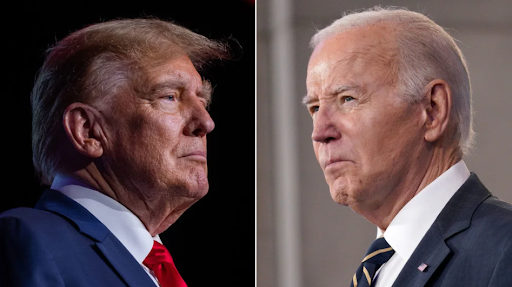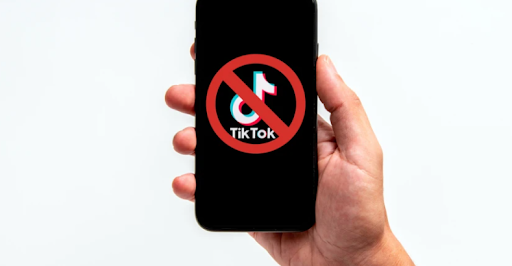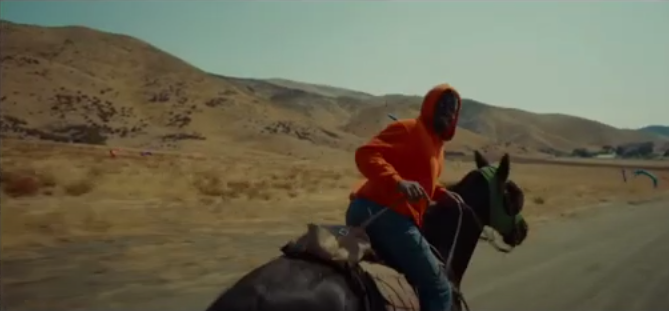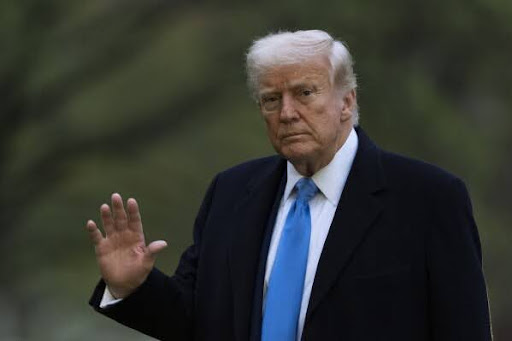Recently there have been ongoing conversations about whether the United States government should ban TikTok. While there are mixed opinions on this topic, in the end, people need to start thinking about the root of this issue. If TikTok gets banned, does this open a door for allowing other apps to be prohibited by the government?
The Purpose of Banning an App
When first exploring the topic of the government banning apps, it was best to dive into the history of banning apps. According to Alive.com, the government has never banned a foreign app before.
So why start now?
On March 13, 2024, a bill was signed by the House of Representatives which discussed the possibility of banning TikTok if the China owner ByteDance does not sell it. The government’s reason for threatening to ban TikTok comes from their reason to believe that China is violating the security of millions of Americans.
Before the most recent meeting that took place in Washington, npr.org stated that there was a secret meeting previous to this, also in Washington, where Congress had a closed-door meeting about TikTok with top national security.
Mrs. Sara Jacobs, a Democrat from California, explained to the Associated Press how in this undercover meeting “nothing…not a single thing we heard in today’s classified briefing was specific to TikTok.” So if this meeting claimed to have taken place was not about banning TikTok, then what was it about?
Other people involved in politics have also said that in order for the app to be banned, the government needs to be specific on the reasoning behind making this a national security issue.
Mr. Jameel Jaffer, an executive director of the First Amendment Institute at Columbia, expresses passionate feelings toward the fact that “you can’t restrict Americans’ constitutional rights on the basis of secrets.” Therefore, Jaffer emphasizes that if the government were to ban any app in general, the public deserves the right to have access to the full reason as to why.
We decided we needed to ask for classmates’ opinions on this. In a survey that we created, an anonymous source stated, “If the app is promoting illegal or directly violent activity, not through its creators but rather through the app itself, then that can be considered dangerous and subject for a ban.”
Mr. John Siegfried, a history teacher at Pentucket shared that he is “…against banning information and censorship in general, but these apps are potentially more than just providing information. Some apps are also not controlled/owned by the United States and therefore are not transparent or regulated like other businesses.”
A science teacher at Pentucket, Mr. John McNamara, states that banning apps is “dangerous […] but I am very concerned about apps like TikTok and their influence on younger kids so I am now leaning towards banning apps based on age.”

(TikTok CEO Shou Chew pictured above)
What the TikTok Ban Would Mean for Future Policies
A TikTok ban would be threatening, as it would open the door for the government to be able to limit freedom of speech and expression. In a transcript from Tech Policy Press, TikTok CEO Mr. Shou Chew said “TikTok is a place for freedom of expression and cherish.”
Many have argued that a ban on TikTok would effectively limit Americans’ freedom of speech and would go directly against the First Amendment.
Chew is not the only one with this perspective on the ban. When asked about the possibility of the government being able to ban apps, a Pentucket student stated, “I think that if the government is able to ban apps off of a suspicion, then they will be able to just ban anything they want to [in the future].”
To investigate this further, we interviewed Pentucket history teacher Mr. Mark Dziedziak for his opinion on what he thinks the ban would mean for future policies. He did not hesitate to exclaim, “I think it [sets] a dangerous precedent. I also think this is a distraction from real issues and the business of government. It is part of a moral panic that is deeply misguided.”
While Dziedziak focuses on this mindset for banning future policies, McNamara thinks more of how “we need to try something to stop the influencers from impacting our kids.”
How The Ban Would Affect Citizens of the Future
Imagine a world where apps that people use every day such as YouTube, Instagram, or maybe even something as benign as Clash of Clans, could be removed from users’ devices at the whim of the government. There is a very wide range of damage that could be inflicted by the ban.
Dziedziak speculates that the ban “[…] could lead to further restrictions on the dissemination and availability of information.” He further says, “I think focusing on TikTok and social media in general is a waste of time. I would prefer the government not waste time on these issues and instead focus on deeper foreign and domestic policy concerns – environment, Israel/Palestine/ funding for Ukraine.”
Siegfried also believes that apps can pose a problem to citizens, he goes on to say, “This is enormously complicated. Exposure to information, for me, is not the issue, but the collection of information and the potentially harmful use of that collected info and data is. There is also concern about false or misleading info provided by these apps, perhaps designed by governments who are not acting in our interest.”
The ban could apply to non-social media apps such as grocery apps or banking apps which hold a lot of power over a person. In an age where people rely so much on technology, it is scary to think about what the government could do with full control over digital app stores. This ban would enable the government to be domineering over its citizens.
Considering how many people express themselves through a variety of apps, banning any app would harm this self-expression. Students who are active on social media anonymously stated that “I think [a ban] takes away our ability to express our ideals and interests, especially when what other people are producing are the main form of ways that we consume media.”
Furthermore, banning apps harms one’s ability to express oneself in the public eye and it also does not allow one to see diversity in content. Although the topic of social media being useful is a debatable topic, ultimately people feel that “It has its perks.”

(Senator Tom Cotton(R) pictured above)
The Darkness Behind the Bill
Unfortunately, from the information available to the public, it appears that racism is a key factor motivating this bill. The words of Mr. Tom Cotton, a Republican senator from Arkansas, speak for themselves. During a hearing on TikTok, Senator Cotton repeatedly asks Chew if he has ties with the CCP although Chew is a Singaporean national.
This comes almost a year after Senator Cotton posted on X, “[Shou Chew] should be deported immediately and never again allowed to re-enter our country.” Senator Cotton did not provide a specific reason as to why he believed this.

(Donald Trump(R) pictured on the left and Joe Biden(D) on the right)
Political Motivation Behind the Bill
Because of TikTok’s position as a “free speech platform,” there is concern that a ban could create serious ramifications for political campaigns. Two presidential candidates in the 2024 election, Donald Trump and Joe Biden, have taken a stance on the bill.
In an interview on CNBC’s Squawk Box, Trump says, “Without TikTok, you can make Facebook bigger, and I consider Facebook to be an enemy of the people.” One of the main reasons people believe that former President Trump does not like Facebook is because they banned his account after the January 6 Capitol attack, although it has since been reinstated.
President Biden was quoted as saying, “If they pass it, I’ll sign it.” This comes only a month after Biden’s reelection campaign joined TikTok.
Conclusion
Although the TikTok ban is not set in stone, if it were to be implemented, it could have serious implications for future social media users. Overall, while there are differing opinions on whether the government should ban this app, it ultimately comes down to the question, “Is this constitutional?” Landmark cases such as this one often dictate future policies, so it is important to stay informed and form your own opinion.

















